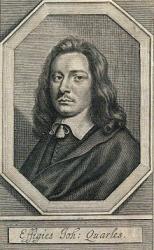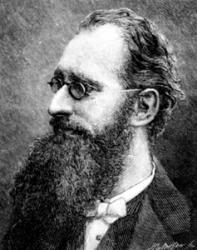Planning worship?
Check out our sister site, ZeteoSearch.org,
for 20+ additional resources related to your search.
- |
User Links
Person Results
‹ Return to hymnal




Export as CSV
Thomas of Celano
1200 - 1265 Hymnal Number: 351 Author of "Day of wrath and doom impending" in The English Hymnal Thomas of Celano was born at Celano in the Abruzzi, and joined St. Francis of Assisi c. 1214. He was commissioned by Gregory IX to write the life of St. Francis: the First Legend, 1229; the Second Legend, 1247; and the Tract on the Miracle of St. Francis a few years later. His Legend of St. Clare was composed in 1255. He was probably among the first band of friars to visit Germany, 1221.
--The Hymnal 1940 Companion
===============================
Thomas of Celano. It is somewhat remarkable that neither the date of the birth nor of the death of this writer, whose name is so intimately associated with the Dies Irae, is on record. He was a native of Celano, a small town near the lake Fucino, in the farther Abruzzo, and hence his name of Thomas of Celano. Several of the inhabitants of this town were driven therefrom by Frederick II. in 1223, and Thomas with the rest. He found his way to Assisi, and became a monk there during the lifetime of St. Francis. The Franciscan Order was established in 1208, Thomas was therefore one of the early students at Assisi. He was subsequently "custos of the convents of Worms, Mentz, and Cologne, and afterwards sole custos of the Rhine districts." The last named appointment he held till 1230, when he returned to Assisi. As intimated above the date of his death is not on record. It is sometimes given as 1255. Thomas also wrote a Life of St. Francis.
--John Julian, Dictionary of Hymnology, Appendix I (1907)
See also in:
Hymn Writers of the Church
Thomas of Celano
Basil Woodd
1760 - 1831 Person Name: Basil Woodd, 1760-1831 Hymnal Number: 616 Author of "Hail, thou source of every blessing" in The English Hymnal Woodd, Basil , M.A., was born at Richmond in Surrey, Aug. 5, 1760. The influences of his home and of his widowed mother were most salutary, and produced the best results. As a boy he studied under the Rev. T. Clarke, of Chesham Bois, and at seventeen he entered Trinity College, Oxford. Taking Holy Orders in 1783, he was chosen lecturer of St. Peter's Cornhill, in 1784; morning preacher at Bentinck Chapel, Marylebone in 1785, and Rector of Drayton Beauchamp, Buckinghamshire, in 1808. Bentinck Chapel being a proprietary chapel, he purchased the lease in 1793, and held the Incumbency, together with the Rectory of Drayton, from 1808 to his death on April 12, 1831. He took a deep interest in the great religious societies, and in the anti-slavery movement. His prose works were not numerous or important. He is associated with hymnody through the publication of the following:—
(l) The Psalms of David.....Adapted to the Services of the Church of England, &c, 1794. 2nd edition, 1800. (2.) The Psalms of David and other portions of the Sacred Scriptures arranged according to the Order of the Church of England, for every Sunday in the Year, &c, London: Printed and sold by Watts and Bridgewater, n.d. circa 1810-20. The Preface is signed "B. W." (3.) A New Metrical Version of the Psalms of David; with an Appendix of select Psalms and Hymns, adapted to the service of the United Church of England and Ireland ... .By the Rev. Basil Woodd, M.A., &c, London: Printed and sold by E. Bridgwater, 1821. Dedicated to the Bishop of Durham. A portion of the preface of No. 2 was repeated; but the preface as a whole, was more historical than the preceding. With the exception of 4 hymns, and 4 doxologies at the end, this collection is a reprint of No. 2, with a new title-page, a dedication, and an enlarged preface.
Very few of Basil Woodd's hymns and paraphrases of the psalms are now in common use. The best known is "Hail, Thou Source of every blessing". The rest include:—
1. Blest be Jehovah, mighty Lord. Ps. cxliv. 1794.
2. Holy Ghost inspire our praises. Whitsuntide, circa 1810-20.
3. In Thee, O Lord, I trust, My hope is in Thy Name. Ps. xxxi. 1794.
4. Lord of glory and salvation. Praise, circa 1810-20.
A short Memoir of the Rev. Basil Woodd, M.A. By the Rev. S. G. Wilks, M.A., was published by Hatchard & Son, London, 1831.
-- John Julian, Dictionary of Hymnology (1907)
Basil Woodd
E. J. Newell
1853 - 1916 Hymnal Number: 211 Author of "We praise thy name, all-holy Lord" in The English Hymnal Newell, Ebenezer Josiah, M.A., son of C. W. Newell, was born in Southwark, Surrey, June 22,1853, entered Worcester College, Oxford, as an exhibitioner in 1871 (B.A. 1876, M.A. 1878) was ordained D. 1890, P. 1891, and has been since 1900 rector of Neen Sollars, Salop. His hymn,
We praise Thy Name, all-holy lord [St. David], was written 1896, and first printed in the Northern Churchman and St. David's Weekly, Feb. 29, 1896, as a hymn of the Welsh Saints, for St. David's Day, with 7 verses. In The English Hymnal, 1906, No. 211, with three verses, relating to St. David alone. [Rev. James Mearnes, M.S.]
--John Julian, Dictionary of Hymnology, New Supplement (1907)
E. J. Newell
John Quarles

1624 - 1665 Person Name: J. Quarles, 1624-65 Hymnal Number: 432 Author of "Long did I toil, and knew no earthly rest" in The English Hymnal Quarles, John, son of Francis Quarles, was born in Essex in 1624, and was educated at Exeter College, Oxford. He bore arms within the garrison at Oxford on behalf of Charles I. and subsequently (it is said) he was raised to the rank of captain in the King's service. On the downfall of the King, Quarles retired to London, and devoted himself to literature for a livelihood. He died there during the great Plague, 1665. He published several works including (1) Jeremiah's Lamentations Paraphrased, with Divine Meditations, 1648; and (2) Divine Meditations upon Several Subjects whereunto is annexed God's Love to Man’s Unworthiness, with several Divine Ejaculations. London, 1655 (Wood's Athenae Oxon.). From the Ejaculation, Mr. Darling adapted two hymns for his Hymns for the Church of England. In the 1889 ed. these are:— “O King of kings, before Whose Throne" (Holy Trinity); and "O Thou Who sitt'st in heaven and seest" (Visitation of Sick).
--John Julian, Dictionary of Hymnology (1907)
John Quarles
Johann W. Meinhold
1797 - 1851 Person Name: J. W. Meinhold, 1797-1851 Hymnal Number: 353 Author of "Gentle Shepherd, thou hast stilled" in The English Hymnal Meinhold, Johann Wilhelm, D.D, son of Georg Wilhelm Meinhold, pastor at Netzelkow on the island of Usedom, was born at Netzelkow, Feb. 27, 1797, and entered the University of Greifswald in 1813. He became rector of the Town School at Usedom in 1820. In 1821 he was appointed pastor of Coserow in Usedom, and, in 1828, of Crummin in Usedom (D.D. from Erlangen in 1840). He finally became, at Easter, 1844, pastor at Behwinkel, near Stargard. He was a staunch Conservative, and after passing through the revolutionary period of 1848, this feeling, coupled with his leaning to Konian Catholicism, made him resign his living in the autumn of 1850. He retired to Charlottenburg, a suburb of Berlin, and died there, Nov. 30, 1851 (Allgemeine Deutsche Biographie xxi. 235; MS. from Pastor Schmock of Netzelkow, &c).
Meinhold is perhaps best known by his historical romance Maria Schweidler, die Bernsteinhexe (1843), which professed to be taken from an old manuscript and was universally accepted as genuine. His poems appeared in his Gedichte, Leipzig. 1823; Vermehrte Gedichte, Coserow, 1824; Proben Geistlicher Lieder, Stralsund, 1834; Gedichte, Leipzig, 1835, &c.; and also in Knapp's Christoterpe and Evangelischer Lieder-Schatz
Meinhold's hymns are of considerable interest. Those translated into English are:—
i. Guter Hirt, du hast gestillt. Death of a Child. This beautiful little hymn is in his Gedichte, Leipzig, 1835, vol. i., p. 38, in 3 st. of 6 1., and headed, "Sung in four parts beside the body of my little fifteen months' old son Joannes Ladislaus." (In reply to inquiries addressed to Crummin in January, 1888, Provinzial-Vikar Bahr has kindly informed me that this child was born at Crummin April 16, 1832, died there, of teething, on July 2, and was buried there, July 5, 1833.) It is included in Knapp's Evangelischer Lieder-Schatz, 1837, No. 3411 (1865, No. 2983). Translated as :—
Gentle Shepherd, Thou hast still'd. A full and very good translation by Miss Winkworth, in her Lyra Gemanica, 2nd Ser., 1858, p. 122. This has passed, unaltered, into many recent hymnals, as the People's Hymnal, 1867, Hymnary, 1872, Hymnal Companion, 1876, &c.; and in America, into the Presbyterian Hymnal, 1874, Evangelical Hymnal, N. Y., 1880, and others. In the Appendix of 1868 to Hymns Ancient & Modern, it was included as No. 358, with long in st. i., 1. 2, altered to brief, and beginning, "Tender Shepherd, Thou hast stilled." This form has been followed in the Society for Promoting Chrisian Knowledge Church Hymns, 1871, Baptist Hymnal, 1879, &c.; and in America, in the Episcopal Hymnal, 1871, Hymns & Songs of Praise, N.Y., 1874, Laudes Domini, N. Y., 1884, and many others.
ii. 0 Bethlehem! 0 Bethlehem! Was ist in dir geschehen. Christmas. This fine hymn is in the Appendix to Knapp's Evangelischer Lieder-Schatz, 1837, p. 837, and in Knapp's Christoterpe, 1838, p. 152, in 7 st. of 7 1. Translated as "0 Bethlehem! 0 Bethlehem!" by Dr. H. Mills, 1845 (1856, p. 272). [Rev. James Mearns, M.A.]
-- John Julian, Dictionary of Hymnology (1907)
Johann W. Meinhold
Maud Coot
1852 - 1935 Person Name: Mrs. Coote Hymnal Number: 222 Author of "The Son of Consolation!" in The English Hymnal Coote, Maud, née Oswell. Mr. Ellerton's notes in Church Hymns, annotated ed., 1881, on this writer are:—
1. The strain of joy and gladness. (St. Andrew.) “By Miss Maude Oswell (now Mrs. Coote). Written for use in St. Andrew's Church, Frankton, Salop. Contributed to Church Hymns, 1871.”
2. The Son of Consolation. St. Barnabas. "Contributed to Church Hymns, 1871."
--John Julian, Dictionary of Hymnology, Appendix, Part II (1907)
Maud Coot
J. F. Bahnmaier

1774 - 1841 Person Name: J. F. Bahnmaier, 1774-1841 Hymnal Number: 552 Author of "Spread, O spread, thou mighty word" in The English Hymnal Bahnmaier, Jonathan Friedrich, son of J. G. Bahnmaier, Town Preacher at Oberstenfeld, near Bottwar, Württemberg, was born at Oberstenfeld, July 12, 1774. After completing his studies at Tübingen, his first appointment was, in 1798, as assistant to his father. He became Diaconus at Marbach on the Neckar in 1806, and at Ludwigsburg in 1810, where he was for a time the head of a young ladies' school. In 1815 he was appointed Professor of Education and Homiletics at Tübingen, but in the troublous times that followed had to resign his post. He received in 1819 the appointment of Decan and Town Preacher at Kirchheim-unter-Teck, where he continued as a faithful, unwearied, and successful worker for 21 years. He was distinguished as a preacher, and greatly interested in the causes of education, of missions, and of Bible societies. He was also one of the principal members of the committee which compiled the Württemberg Gesang-Buch of 1842. He preached his last sermon at Kirchheim, on the 10th Sunday after Trinity, Aug. 15, 1841. Two days later he held a visitation at Owen. While inspecting the school at the adjacent village of Brucker, he was struck by paralysis, and being conveyed back to Owen, died there, Aug. 18, 1841 (Koch vii. 81-84; Allgemeine Deutsche Biographie, i. 766-767). Of his hymns two have been translated into English:
i. Jesu als du wiederkehrtest. [Schools.] First published in his Christliche Blätter aus Tübingen, pts. 9-12 for 1819, p. 85, in 2 stanzas of 8 lines, entitled "Prayer after School"; as one of 7 metrical prayers for Children, and for the School and House. Included as No. 2947 in Knapp's Evanglischer Lieder-Schatz, 1837 (1865, No. 2614), and No. 513 in the Württemberg Gesang-Buch, 1842. The only translation in common use is:
Jesu, when Thou once returnest. In full by Miss Winkworth in her Chorale Book for England, 1863, No. 178.
ii. Walte, fürder, nah und fern. [Missions.] According to Koch, vii. 84, first printed separately 1827. Included as No. 97 in the Kern des deutschen Ziederschatzes, Nürnberg, 1828, and as No. 260, beginning,"Walte, walte, nah und fern" in Bunsen's Versuch, 1833, in 7 stanzas of 4 line, and since in the Württemberg Gesang-Buch, 1842, and other recent collections. One of the best and most useful of hymns for Foreign Missions. The translations in common use are:
1. Far and near, Almighty Word. A good and full translation by Miss Cox in her Sacred Hymns, Boston, U.S., 1853, and Dean Alford's Year of Praise, 1867, stanza i. was omitted and the hymn thus began, "Word by God the Father sent."
2. Spread thy triumph far and nigh, by H. J. Buckoll. By omitting stanzas ii., iv. as No. 65 in the Rugby School Hymn Book, 1850 (in the Rugby School Hymn Book, 1870, No. 175, the translation is complete). The translations of stanzas iii., v.-vii. altered and beginning "Word of Him whose sovereign will", were included in the Marylebone Collection, 1851, and Burgess and Money's Psalms and Hymns, 1857. The Wellington College Hymn Book, 1863, begins with the translations of stanza v., "Word of life, so pure and free."
3. Spread, oh spread, thou mighty Word. A full and very good translation by Miss Winkworth in her Lyra Germanica, 2nd Series, 1858, p. 60, repeated in her Chorale Book for England, 1863, No. 176. Since included in Kennedy, People's Hymnal, 1867, Horder's Congregational Hymns, 1884, and others; and in America in the Pennsylvania Lutheran Church Book, 1868, Hymns and Songs of Praise, N. Y., 1874, Evangelical Hymnal, and others. In Longfellow and Johnson's Hymns of the Spirit, Boston, 1864, it begins with st. v., "Word of life, most pure, most strong."
Other translations are:
(1) "Go forth, thou mighty word of grace", by Lady E, Fortescue, 1343 (ed. 1847, p. 31). (2) "0 Word of God, reign everywhere," by Dr. G. Walker, 1860, p. 85. (3) "Word of God! with glory crown'd", in L. Rehfuess's Ch. at Sea, 1868, p. 109. [Rev. James Mearns, M. A.]
-- John Julian, Dictionary of Hymnology (1907)
J. F. Bahnmaier
M. Creighton

1843 - 1901 Person Name: Bishop Mandell Creighton, 1843-1901 Hymnal Number: 347 Author of "O thou who gavest power to love" in The English Hymnal Creighton, Mandell, D.D., was b. at Carlisle, July 5, 1843, consecrated Bishop of Peterborough, 1891, translated to London 1896, and d. at Fulham, London, Jan. 14, 1901. For details of his career see the most interesting Life and Letters, 1904, edition by his wife. He was the author of only one hymn, "O Thou Who gavest power to love" (Holy Matrimony). This he wrote in London, early in 1900. He gave a copy in manuscript to the Hon. Sarah Kathleen, daughter of the 4th Lord Lyttleton, who bad it printed, and it was first used on April 26, 1900, at St. Margaret's Church, Westminster, on the occasion of her marriage to Mr. J. C. Bailey, of Egerton Gardens, London. It is in Bp. Creighton's Life & Letters, 1904, vol. ii., p. 515, and The English Hymnal, 1906. [Rev. James Mearns, M.A.]
--John Julian, Dictionary of Hymnology, New Supplement (1907)
M. Creighton
John Donne

1573 - 1631 Person Name: John Donne, 1573-1631 Hymnal Number: 515 Author of "Wilt thou forgive that sin, by man begun" in The English Hymnal Donne, John, D.D., born in London, 1573, and educated as a Roman Catholic, but at the age of nineteen he embraced Anglicanism. He acted for some time as Secretary to Lord Chancellor Ellesmere. At the desire of King James he took Holy Orders, and rising to great fame as a preacher, had the offer of fourteen livings during the first year of his ministry. He was chosen, in 1617, preacher at Lincoln's Inn. In 1621 he became Dean of St. Paul's, and soon afterwards Vicar of St. Dunstan's in the West. Died in 1631, and was buried in St. Paul's. His work as a Poet and Divine is set forth by I. Walton in his Lives, He was the author of the plaintive hymn, "Wilt Thou forgive," &c. (q. v.). Donne's Poems (1633) have been recently edited in an admirable manner by the Rev. Dr. Grosart in his Fuller Worthies Library, where for the first time is printed a full and complete edition of the Poems.
-- John Julian, Dictionary of Hymnology (1907)
John Donne


 My Starred Hymns
My Starred Hymns


